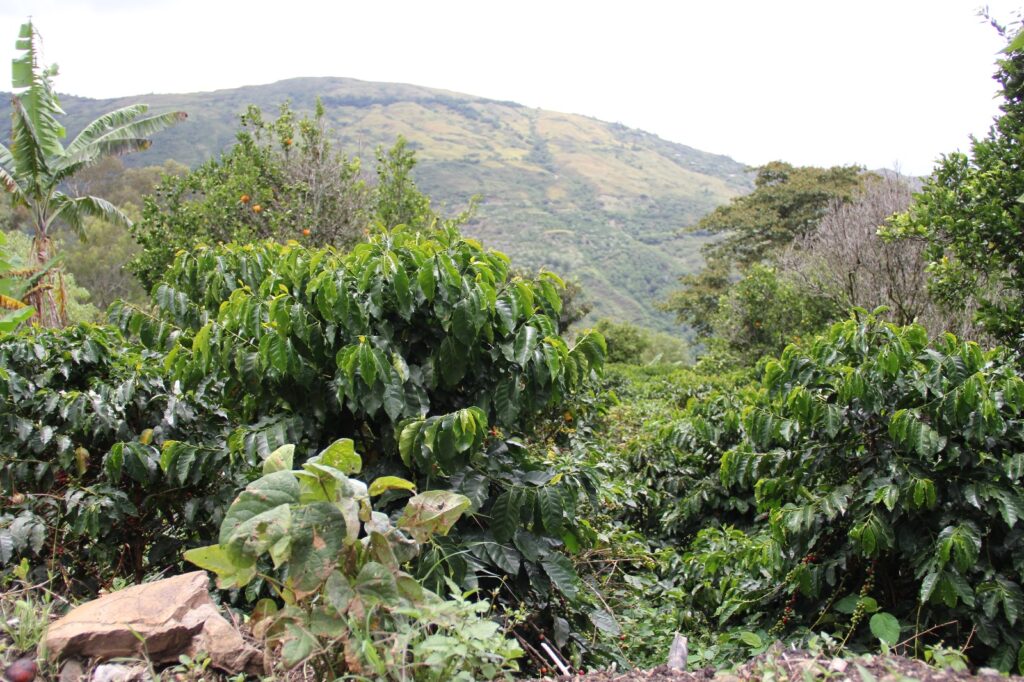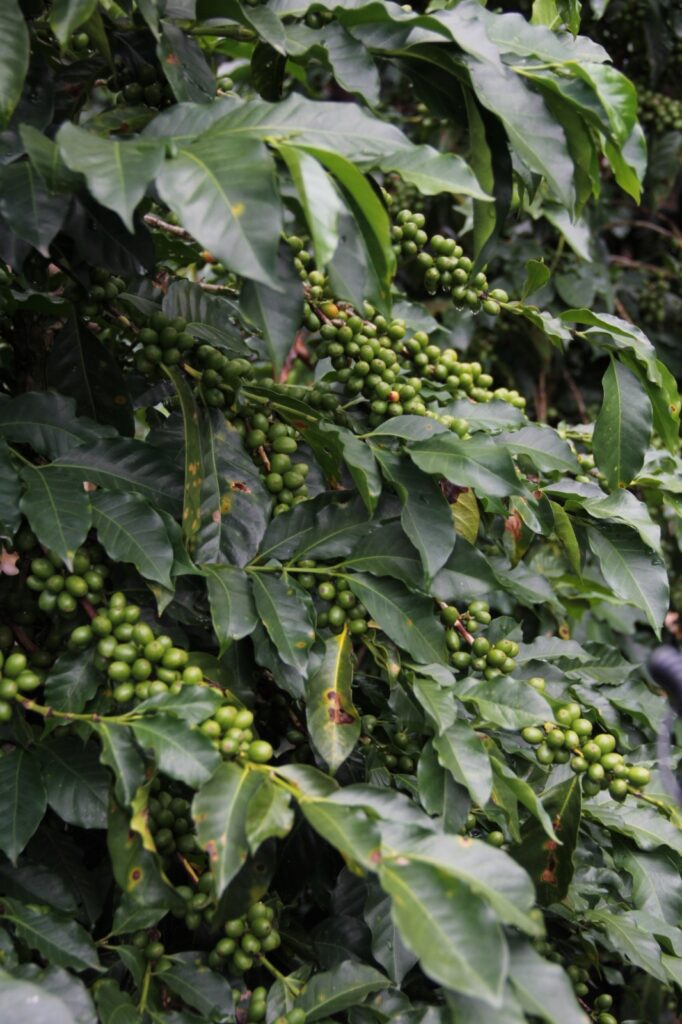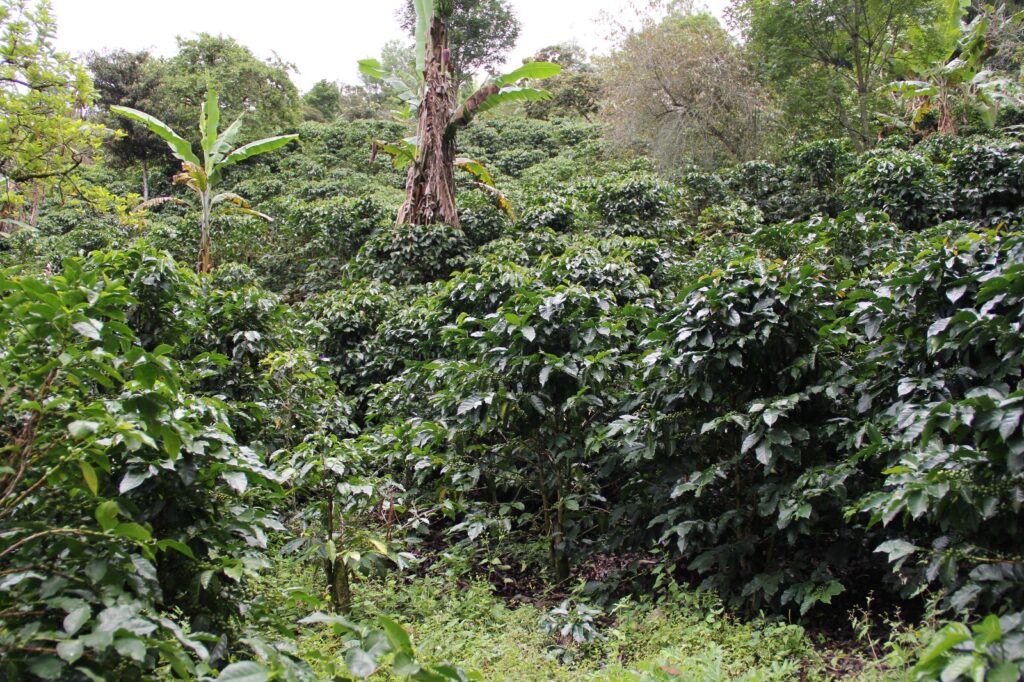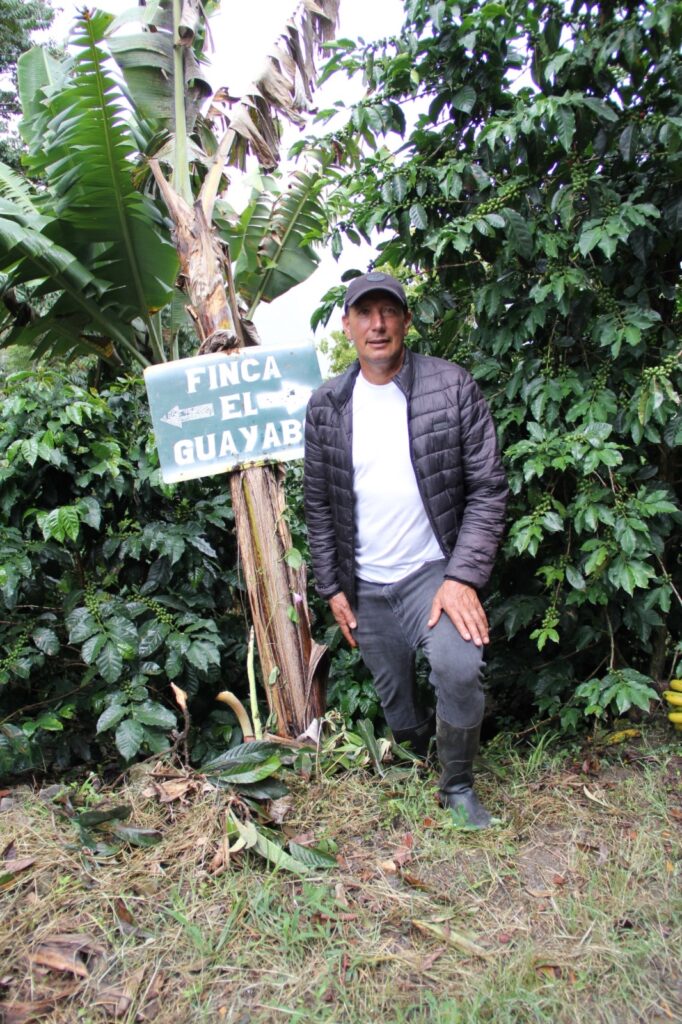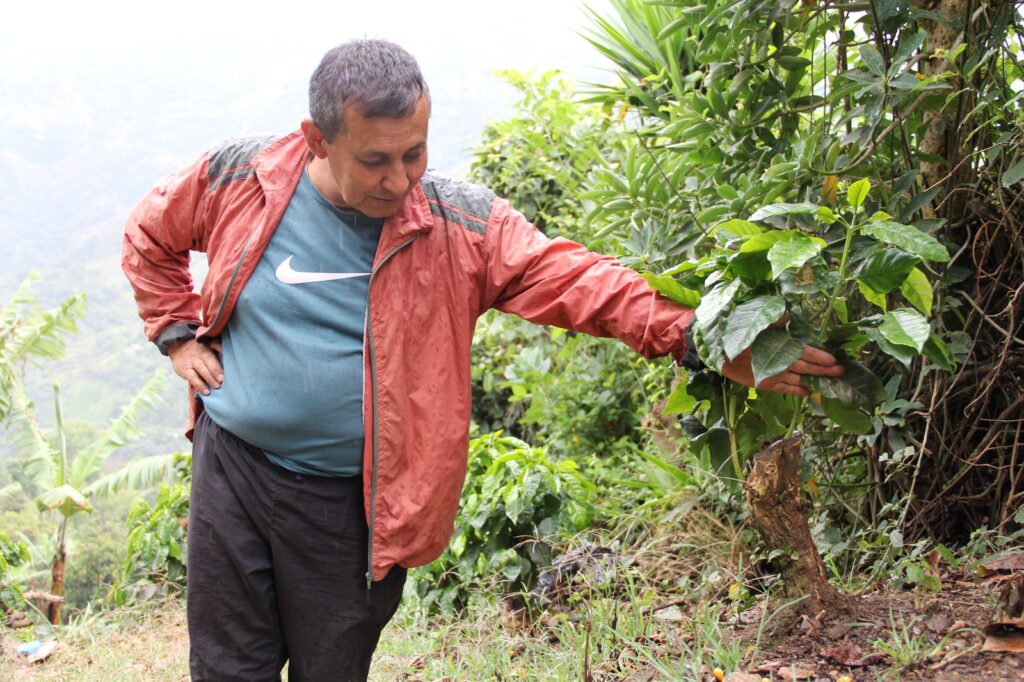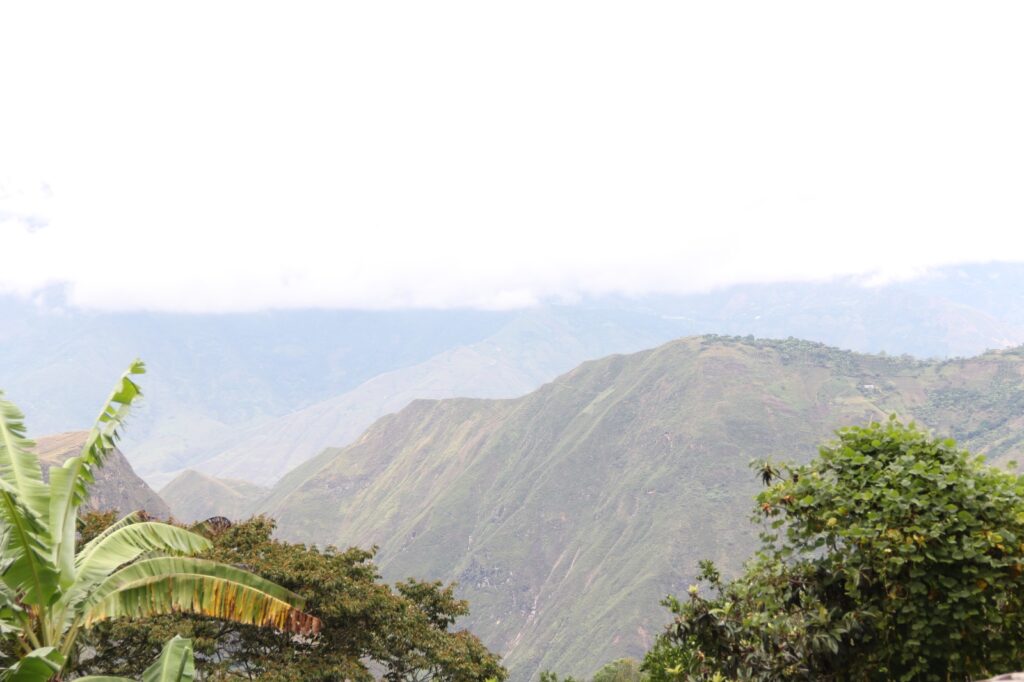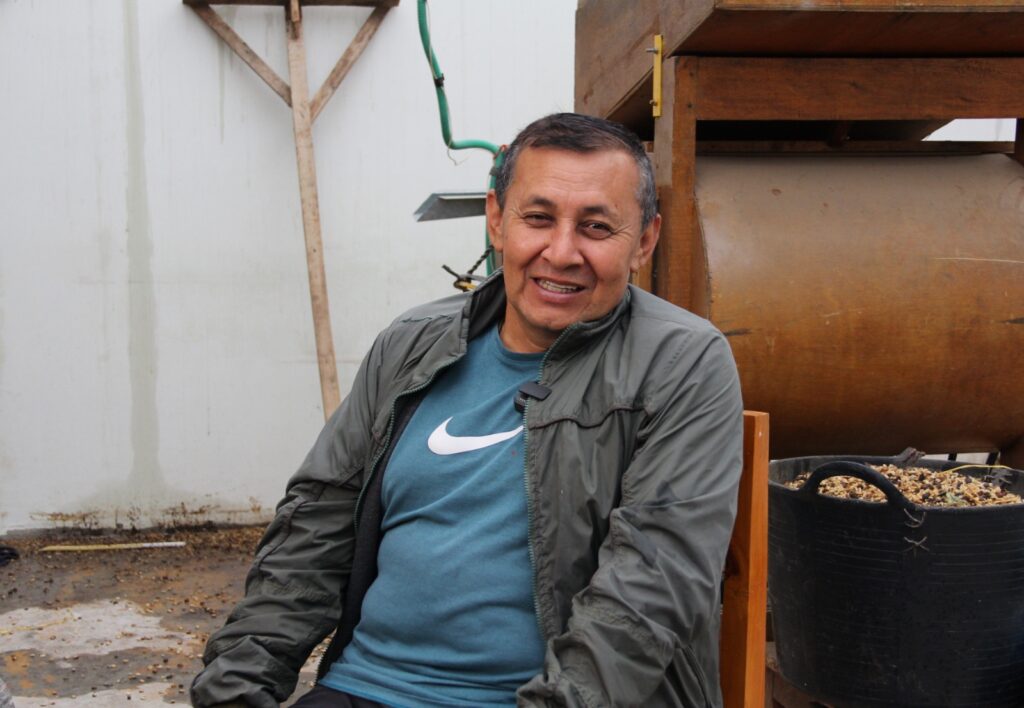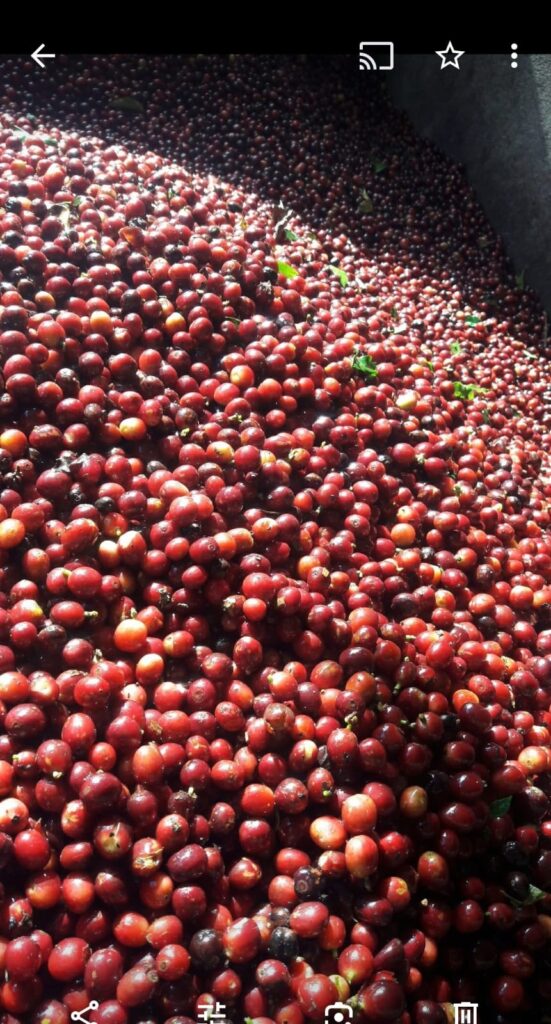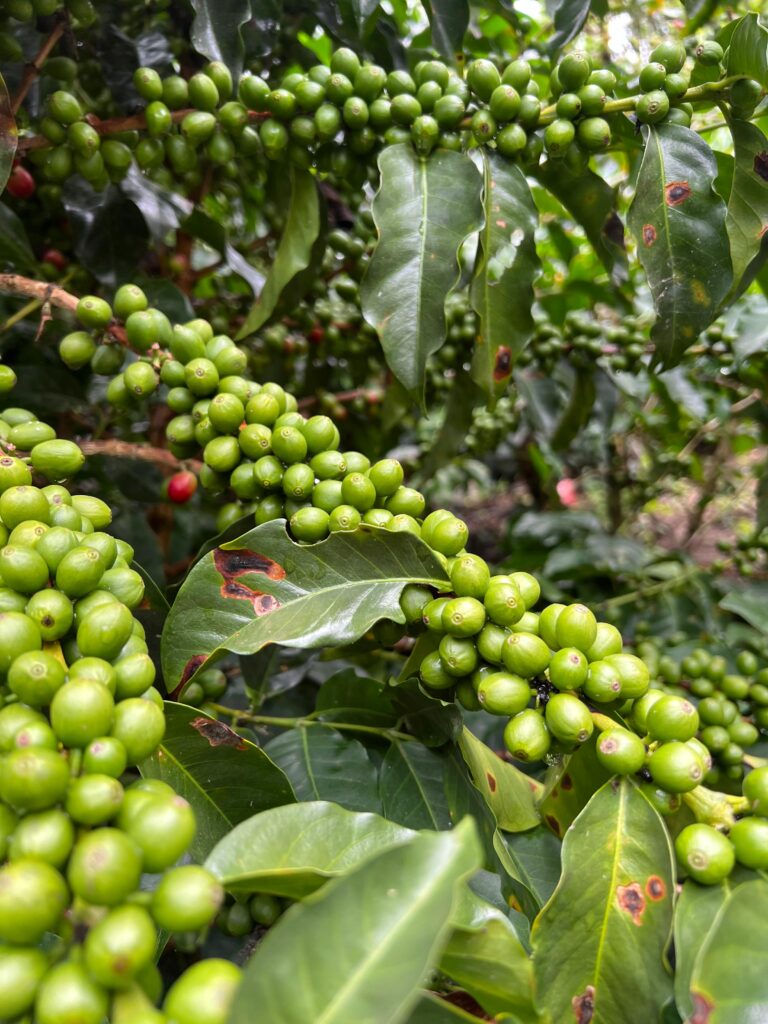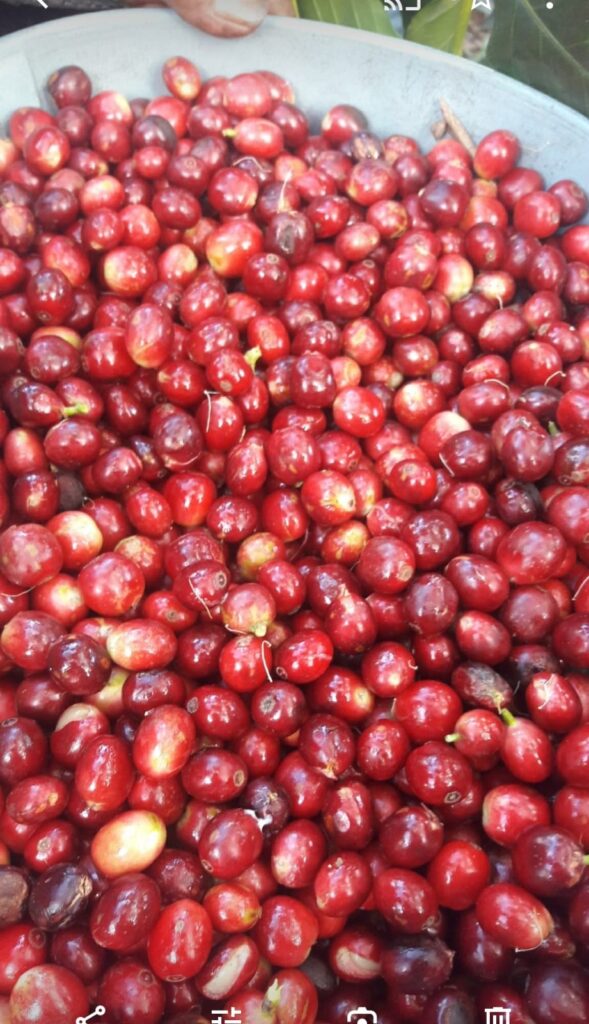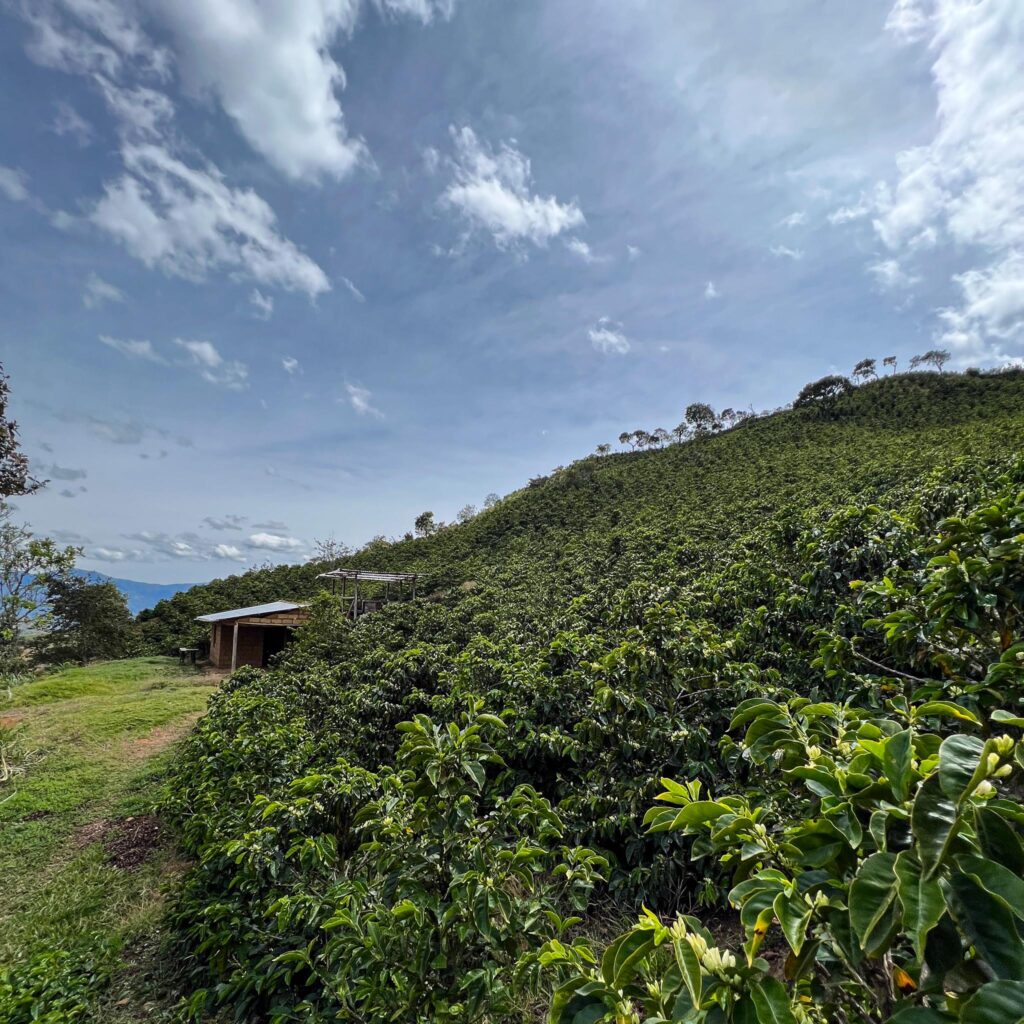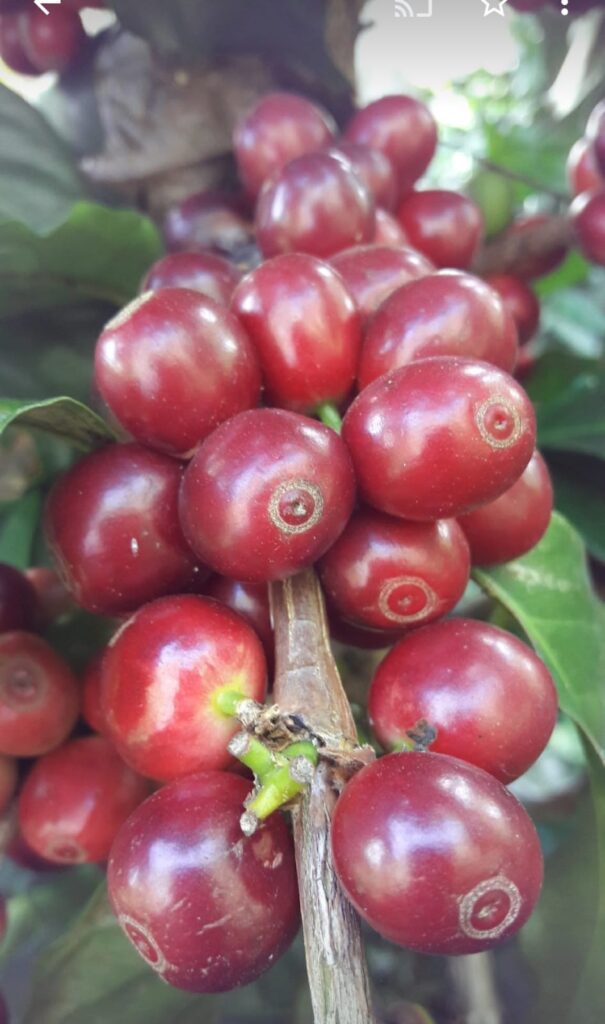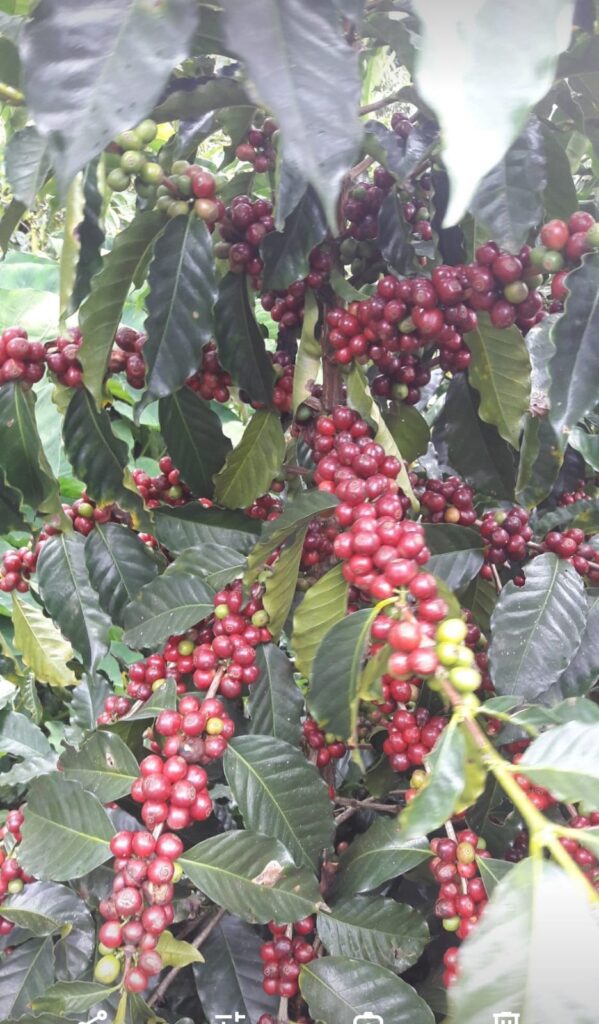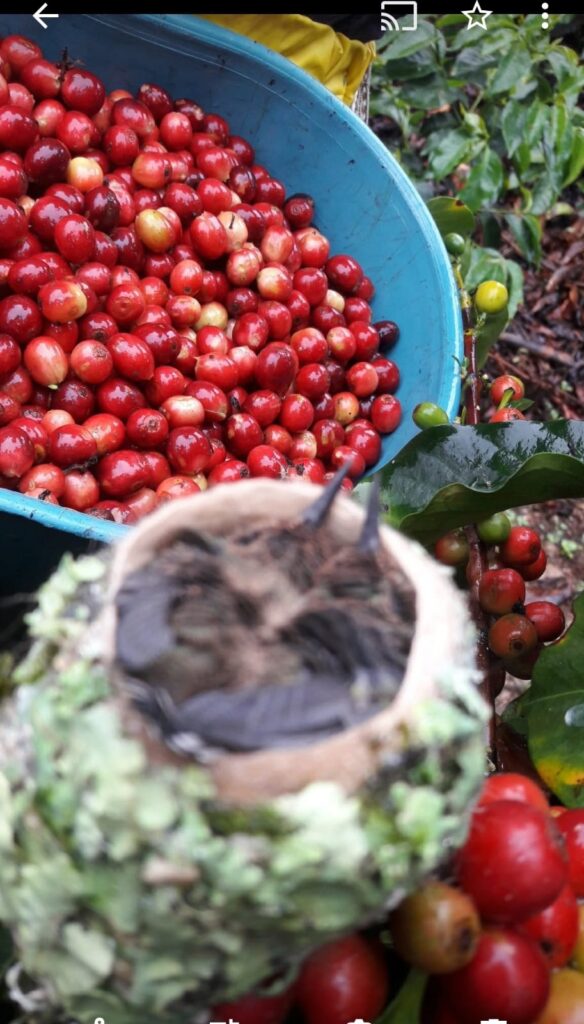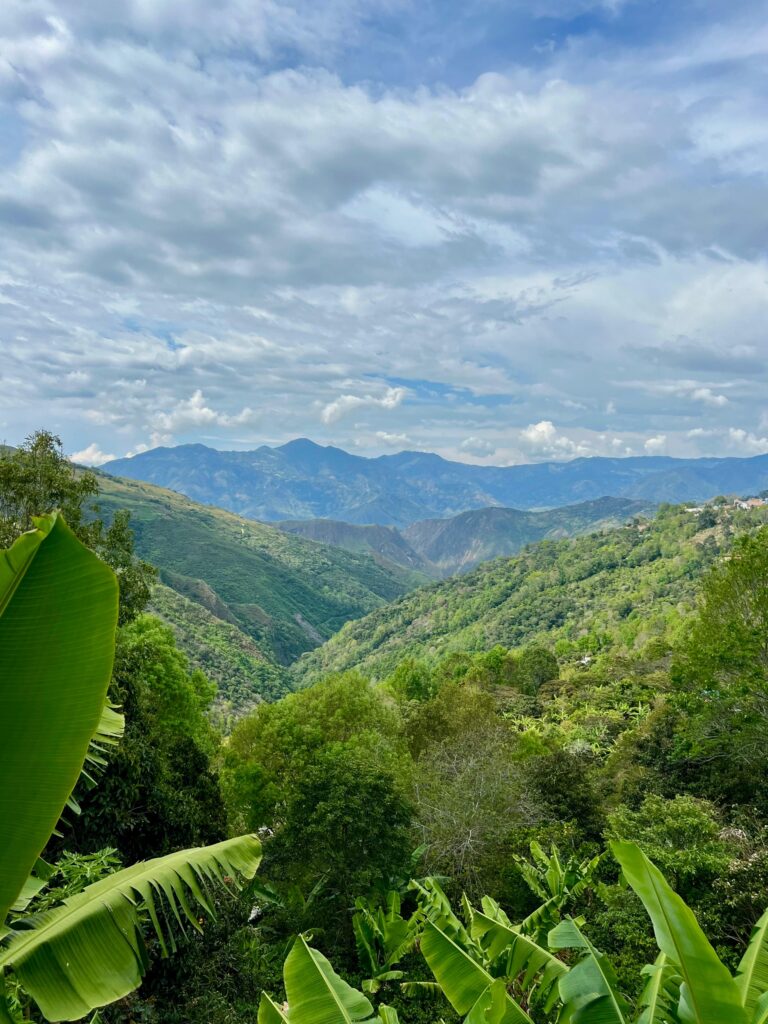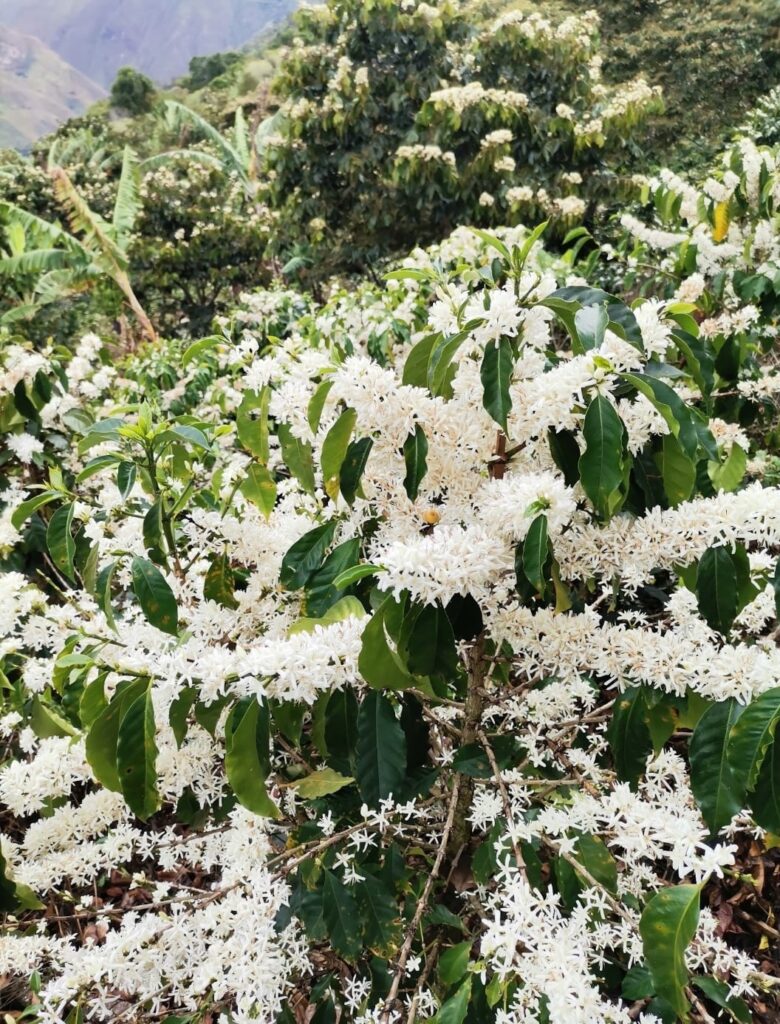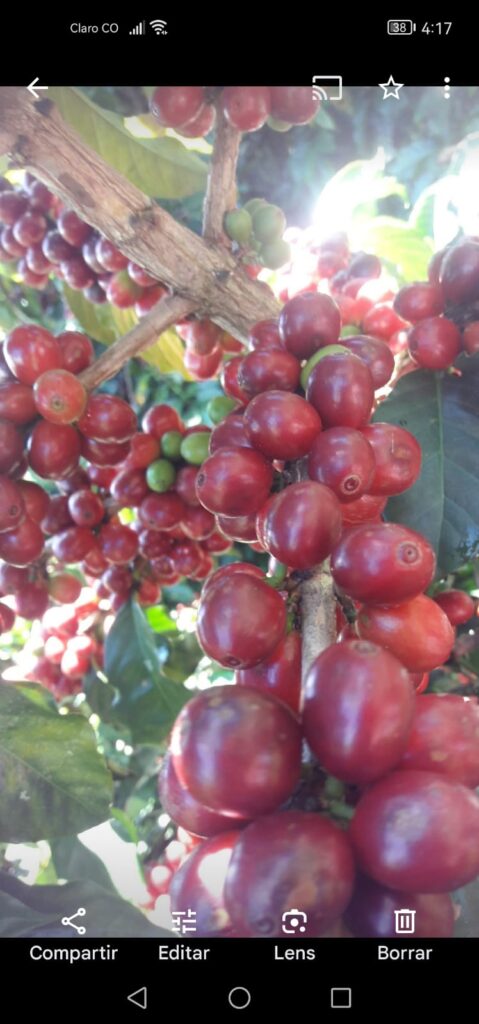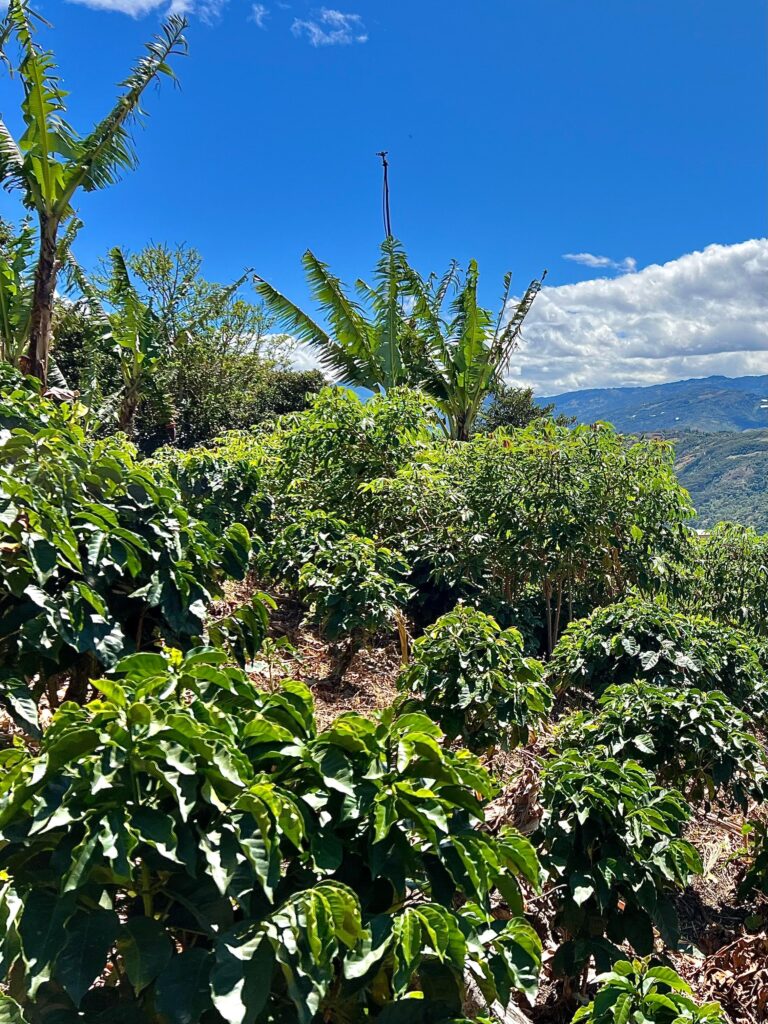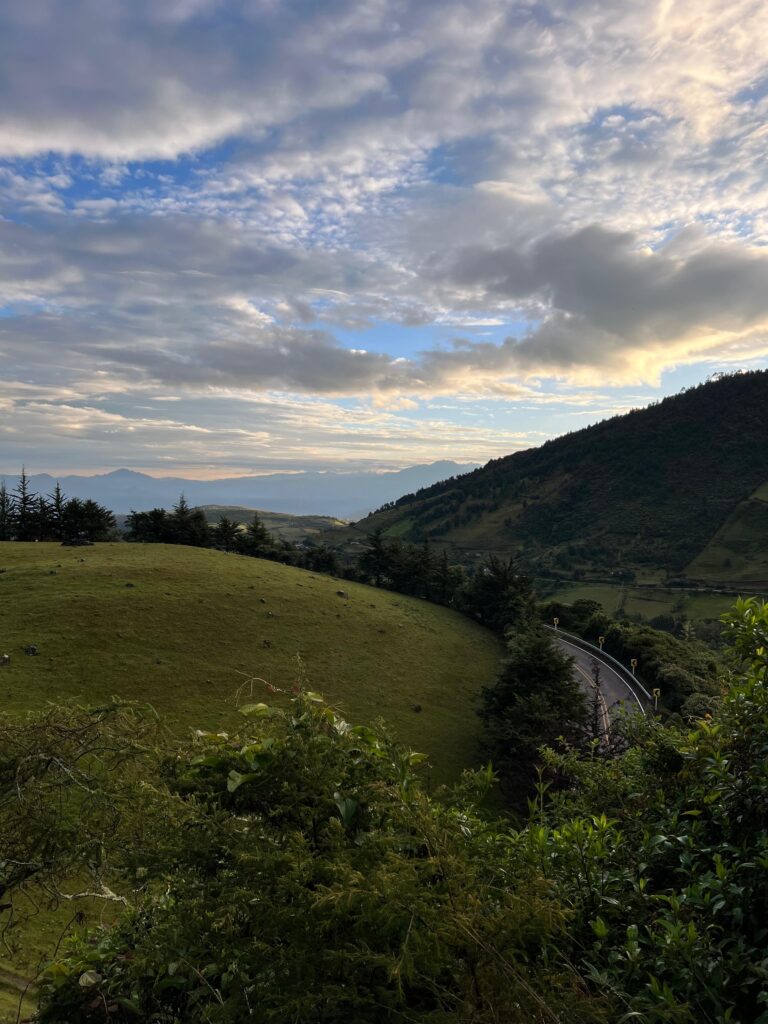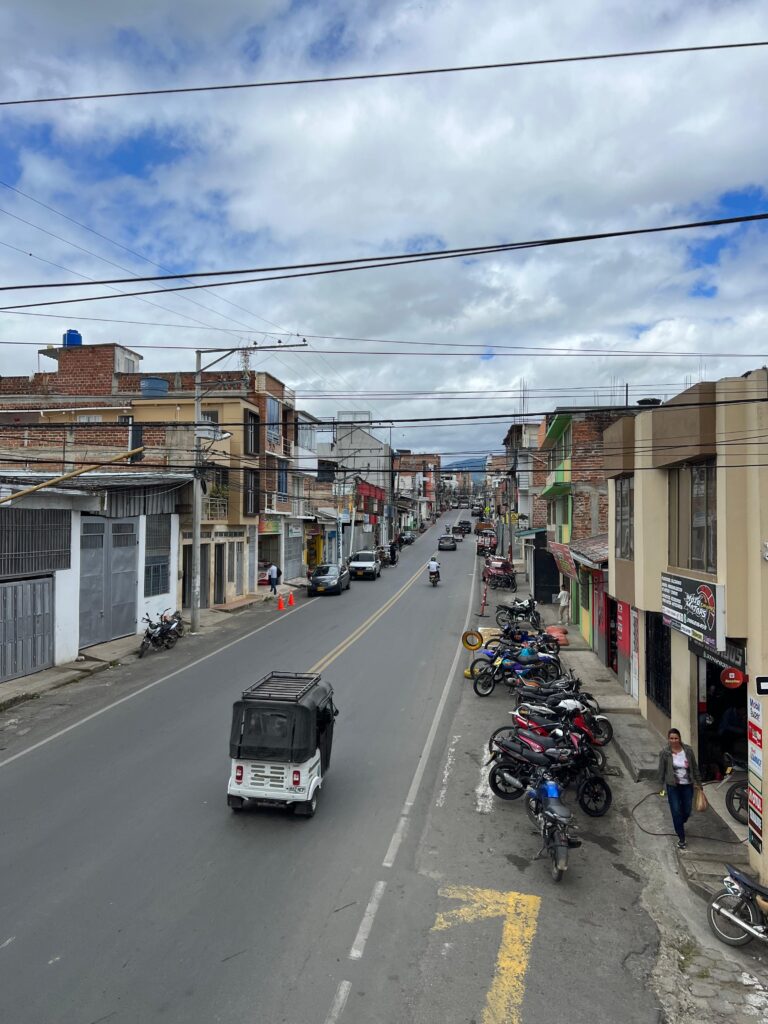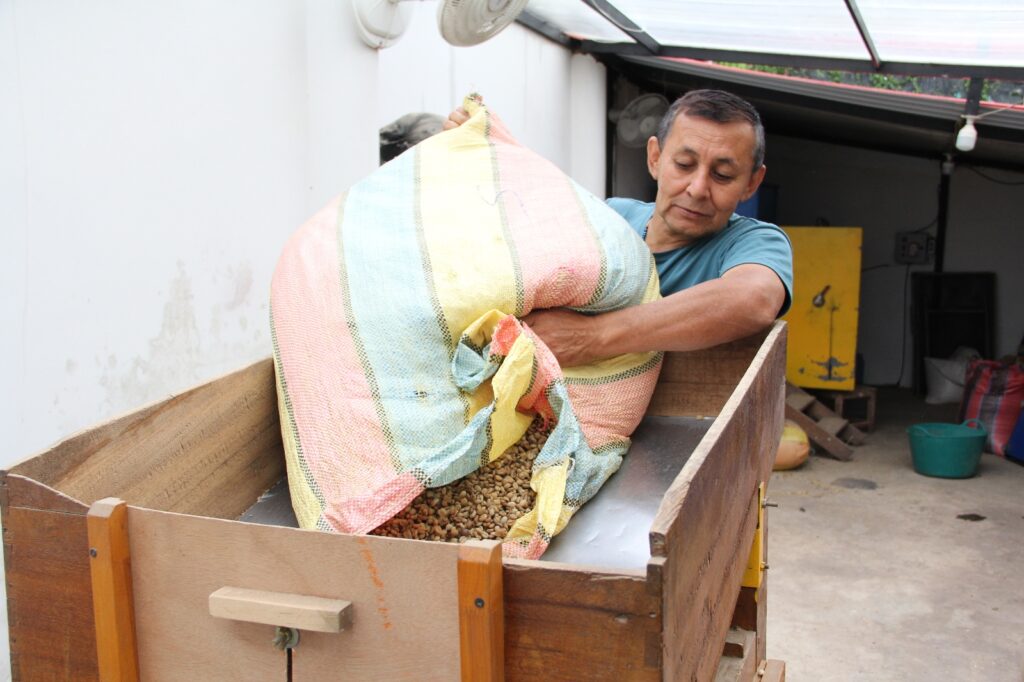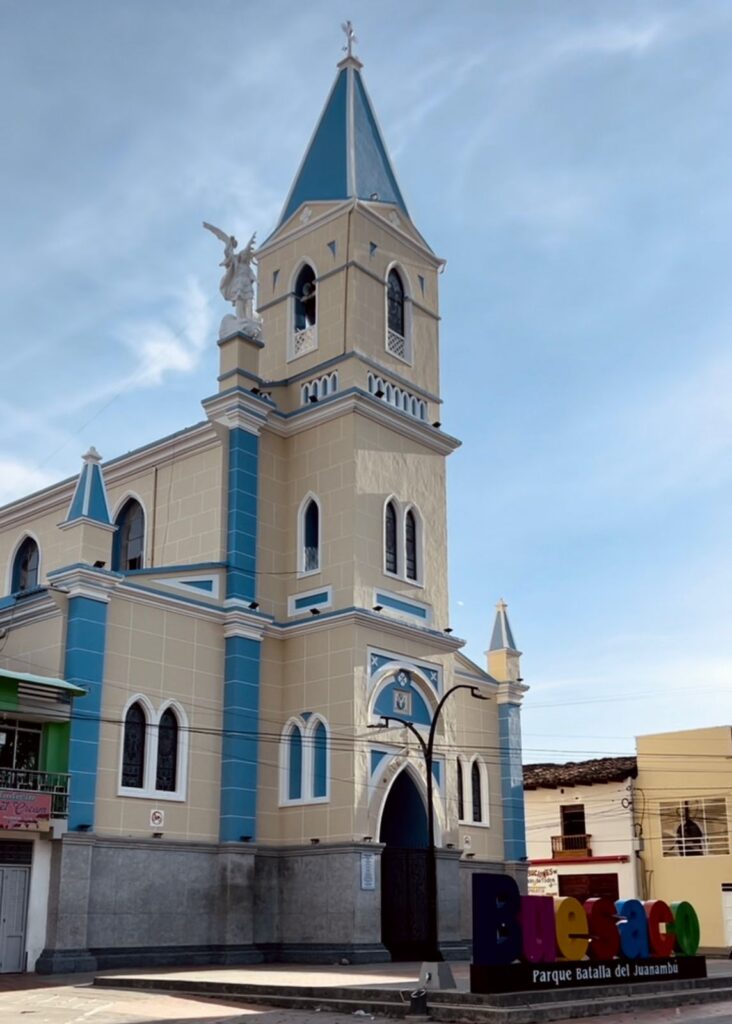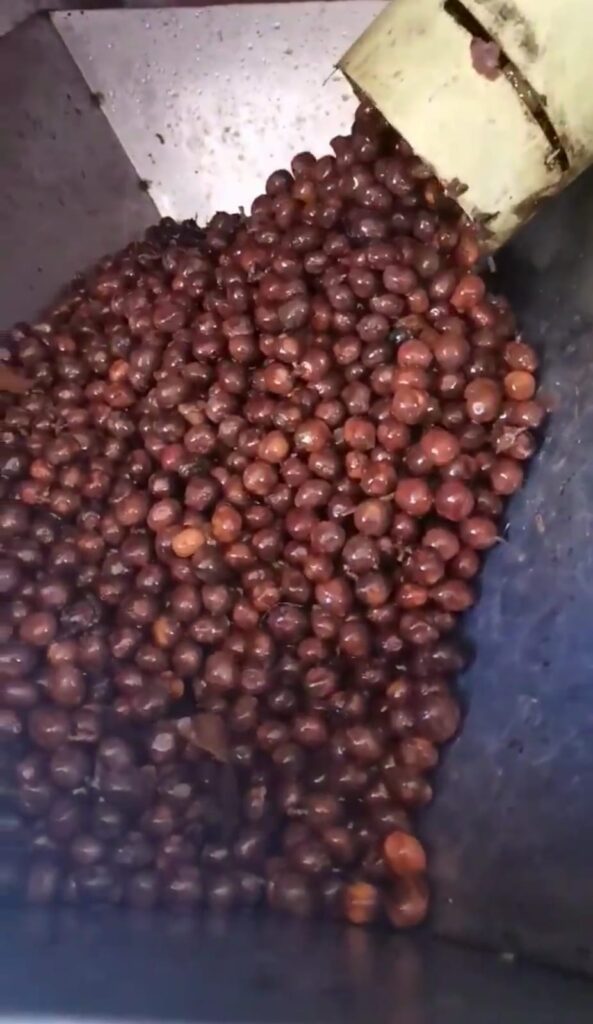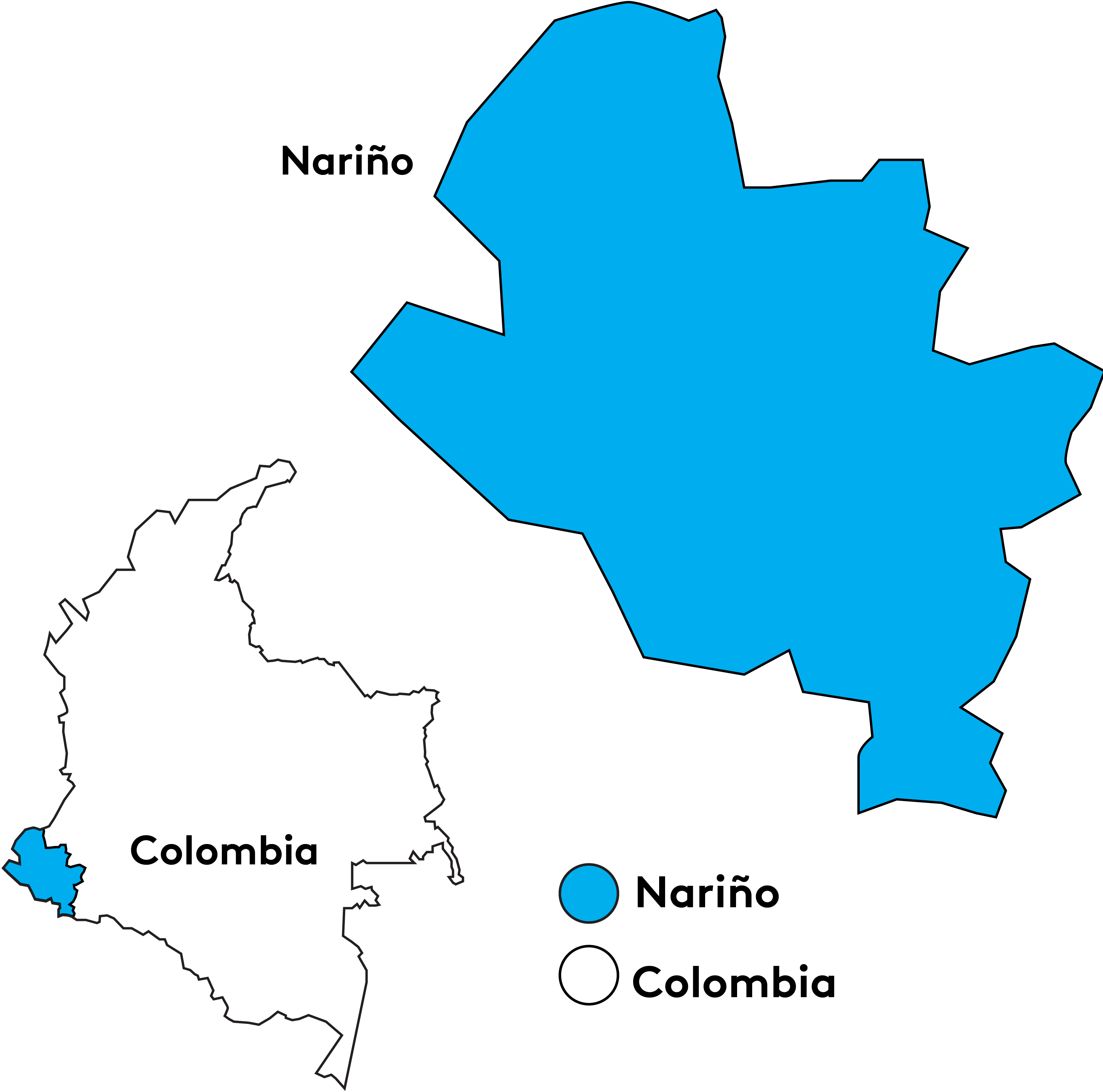This profile consists of lots from regions within the rural area of Buesaco, a traditional coffee-growing municipality of Colombia. The contributing villages include Buesaquito, El Naranjal, Ortega, Veracruz, and Santa María. These areas share similar geographic features, with altitudes ranging from 1700 to 2100 meters above sea level, a dry climate, and uneven terrain. The lots selected for this blend were carefully chosen based on quality, with some producers experiencing their first harvest but exceeding expectations through small pilot experiments, resulting in improved quality of their yields.
The farms benefit from favorable climatic conditions, natural water sources, and native forest reserves, contributing to a diverse ecosystem of flora and fauna. In addition to coffee, the farms grow crops for household consumption such as bananas, lemons, avocados, yucca, and fruits like oranges, mandarins, guava, and guayaba. Adequate sunlight supports optimal plant development through photosynthesis, yielding high-quality coffee beans.
This blend is made from lots contributed by several producers, including Ezequiel Gómez, John Gómez, Amelio Santacruz, and Melky Chávez. The coffee is harvested at the optimal stage of ripeness, with only mature cherries selected. Processing methods include flotation, manual selection, disinfection, anaerobic fermentation in tanks, and drying by mechanical or solar means.
About the Producers:
Amelio Santacruz is from the municipality of Tablón de Gómez and is the first coffee grower in his family. After starting with cereal and fruit crops, he transitioned to coffee in 2005, planting traditional varieties like Colombia and Caturra. In 2014, he began experimenting with varieties like Castillo and Geisha. His farm, El Guayabo, located in Buesaco at an altitude of 1900 meters, is characterized by sandy loam soil and favorable environmental conditions. Sustainable farming practices are employed to maintain optimal coffee production.
Melky Chávez is a third-generation coffee producer who began processing coffee in 2016 to explore ways to improve quality. His farm, El Muro, located at 1900 meters above sea level in Buesaco, cultivates Castillo and Caturra varieties. The farm’s experience in cultivation and processing has been recognized with several national awards for producing differentiated coffees.
Pastor Ezequiel Gómez López hails from Santa María in Buesaco and represents the second generation of coffee growers in his family. He acquired La Esperanza farm in 2020, located in Villa Moreno at an altitude of 2100 meters. The farm, situated on volcanic soil in the Galeras volcano area, specializes in varieties like Bourbon Amarillo, Caturra, and Geisha, with a focus on sustainable practices. The farm also features a forest reserve with native tree species.
John Gómez, a third-generation coffee grower, began cultivating coffee in 2008. He acquired the Guayacana farm in 2018, located at 1950 meters above sea level, characterized by fertile soil, abundant water sources, and a favorable microclimate. The farm cultivates Caturra and Castillo varieties.
Processing:
The harvest process is conducted at the optimal maturity of the cherries. Only ripe fruits are selected, followed by flotation to separate lower-quality cherries. Fermentation takes place in tanks and hermetically sealed bags with valves for sampling, temperature, and pressure monitoring. Fermentation durations range from 180 to 220 hours, with pH and Brix monitored every 12 hours. Mechanical drying occurs at temperatures no lower than 35°C, lasting up to 30 days, depending on weather conditions.
